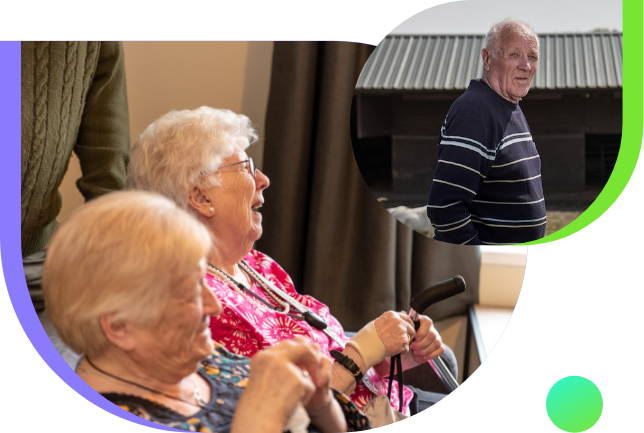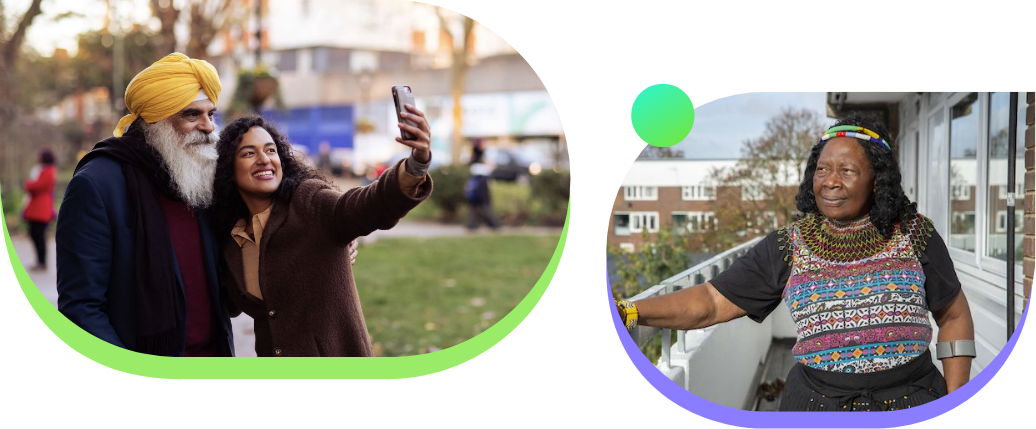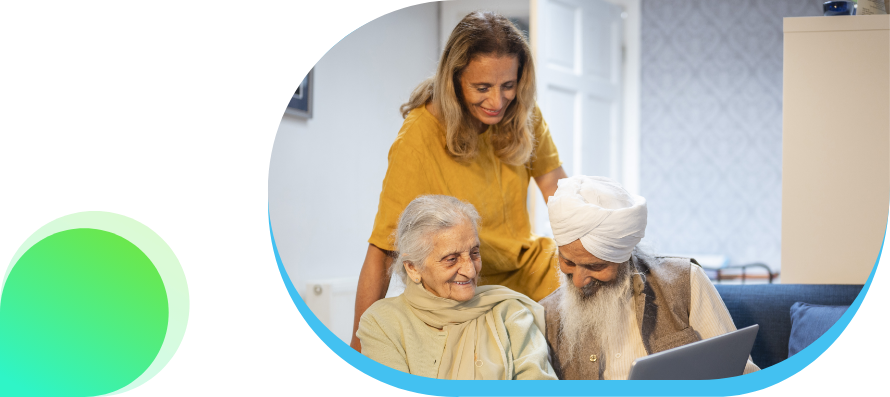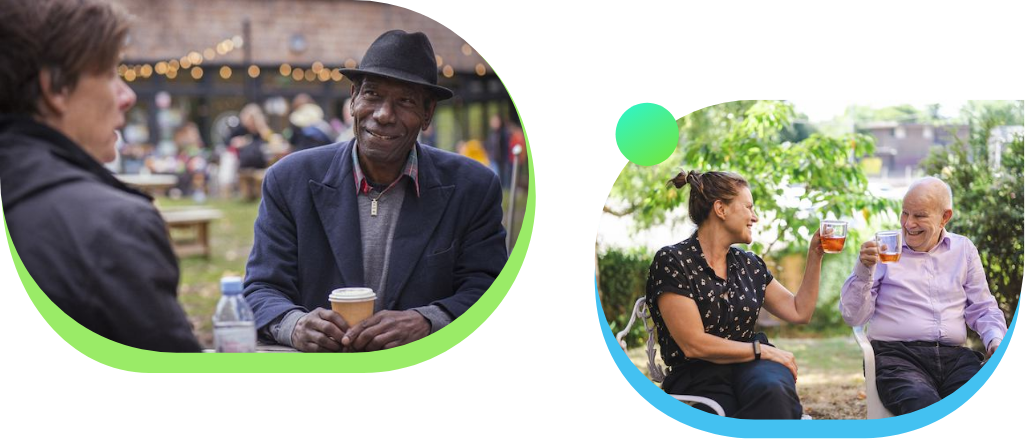Independent living technology in Bield’s Digital Hub
We interview Gary Baillie from Bield to find out how technology forms the cornerstone of Bield’s home of the future.

Technology can potentially transform how older people live their lives. It could help them live more independently in their homes for longer, which has positive knock-on effects for the NHS, local authorities, and other key stakeholders.
Bield is a not-for-profit Scottish charity and registered social landlord based in Scotland. Bield is the only Scottish test site from 6 across the UK taking part in the TAPPI (Technology for our Aging Population: Panel of Innovation) programme led by the HousingLIN, the TSA and funded by the Dunhill medical trust. TAPPI seeks to address the opportunity that technology has to enhance the lives of our ageing population and explore to overcome the barriers that prevent its adoption. Bield’s TAPPI programme, led by Gary Baillie (TAPPI Programme & BR24 Service Manager), are transforming a closed care facility that has been empty for seven years, turning it into a digital living demonstration space, currently called the Digital Hub. The digital hub space will showcase various technology from consumer TEC to technology-enabled care devices, including Anthropos Pro kits, to not only showcase how TEC can support people to live independently but also build on understanding both the workforce and tenant digital literacy skills and support build knowledge and confidence with tech. Bield are also live testing the Anthropos Pro Kits with 15 tenants, which has gone live in May, Gary and his team will evaluate how residents interact with the new tech.
We sat down with Gary to find out more about the project.

Discovering the benefits
We asked Gary about the benefits he’s seen so far during his projects, including the Digital Hub.
“Bield has successfully come off the back of a proactive telecare pilot, working collaboratively with TEC Scotland. During the six-month test of change, we equipped our workforce with the skills required for positive interventions via proactive telecare calls based on data driven information from the BR24 alarm receiving centre. The outcome of the project, which included 45 people undergoing the interventions, saw a reduction in the need for ambulance callouts by over 78% across 45 people. We saved an estimated £71,000 over a three-month period on hospital admission avoidance for the NHS. We have produced some phenomenal and staggering results around that.
“The Digital Hub will allow us to utilise a fantastic resource to help showcase what is possible with tech, providing a hands-on learning environment for tenants, families, staff and external stakeholders. We are looking to evaluate the impact this space has and to showcase that the right technology can support people live independently for longer in their own homes. This space will also allow us to explore with our tenants what is right for them on an individual basis, working in partnership on an individual level to ensure that the tech is choice led and right for each individual, with the ability to adapt as needs change.

Measuring success
Bield, through TAPPI, has partnered with the University of Cambridge to evaluate success and quantify the benefits of digital literacy across the workforce, tenants and external partners. They’re currently determining a methodology to measure the impact of the predictive and preventative technology and the potential cost savings associated with this.
Bield, through TAPPI, has partnered with the University of Cambridge to evaluate success and quantify the benefits of digital literacy across the workforce, tenants and external partners. They’re currently determining a methodology to measure the impact of the predictive and preventative technology and the potential cost savings associated with this.
Gary explains more:
“We’re partnered, through TAPPI, with Cambridge University. They are very prestigious and are the TAPPI evaluation partners. They have helped establish baseline survey’s, one which will help us see where our current staff’s digital literacy sits and what support is needed to take them on the journey. Then, another to work with our tenants and understand their digital literacy, what the barriers are and how we can support overcome these.”
“At the moment, it is more about measuring the customer’s understanding of technology. For example, how many times do you use technology in a day? In April, we had the Cambridge team come up to Scotland to meet us, and we held some interviews where the tenants were using the technology.”
Gary Baillie, Bield Housing and Care
TAPPI Programme & BR24 Service Manager
Sharing knowledge
Bield is at the forefront of testing and implementing digital innovation in its developments. However, not all organisations are as forward-thinking. What would Gary say to other companies further behind on their digital journeys?
“Communication is key, I believe we could share best practices in conversation and look to work collaboratively. I would share what went well and what barriers we have come up against. We are working towards the same goal, supporting people live independently for as long as possible in their own homes and sharing best practice and lessons learned are key. we have got a rich bank of information and learnings that could benefit others.
“We meet the other TAPPI partners regularly and we are actively posting on social media weekly. the other TAPPI partners are also taking to social media, there’s a social media presence. We are regularly engaging with external stakeholders and will also be exploring how to highlight the work across housing in Scotland. We’ve also got tenant champions in these meetings, ensuring that all aspects of the project are co-produced.

Consulting the customer
Finally, we asked Gary to talk about how he brings Bield’s tenants into the conversation:
“We want to have tenants involved from the start. With our TAPPI programme we had tenant champions come across and meet solution providers. For example, our tenant champions met with Paul from Anthropos, as they did with other providers. They got to ask the questions that matter to them and understand what technologies are on offer. They had a say in the direction that we go in. It doesn’t come from the organisation down. The tenants have a say in everything, including the tech we experiment with and test.
"One of the tenant champions came to me very recently and said, “It’s absolutely fantastic. I’m setting the scene and shaping the landscape for the homes of the future. I’m supporting the next generation in housing, so if my daughter moves into these developments, I’ve had a say in what technologies can support us to live independently.”
Find out more from Anthropos!
“Anthropos is going to be working backwards and bringing all the solutions together, so all the tech is talking on the one dashboard. That interoperability is what we need. If we’re looking at solutions for moving forward, we can’t have different suppliers with different platforms, dashboards, and device-managing portals. It’s unpractical for an organisation to work with.”
“Whereas bringing everyone together, ensuring that interoperability is there and talking to each other on the one dashboard, with the one output, allowing staff and relevant people access to the dashboards to monitor actionable information. That’s what it’s all about. At that point, it then becomes cost-effective, it becomes choice-led and truly becomes adaptable to taking a preventative approach focusing on quality outcomes for real people, in real time”
